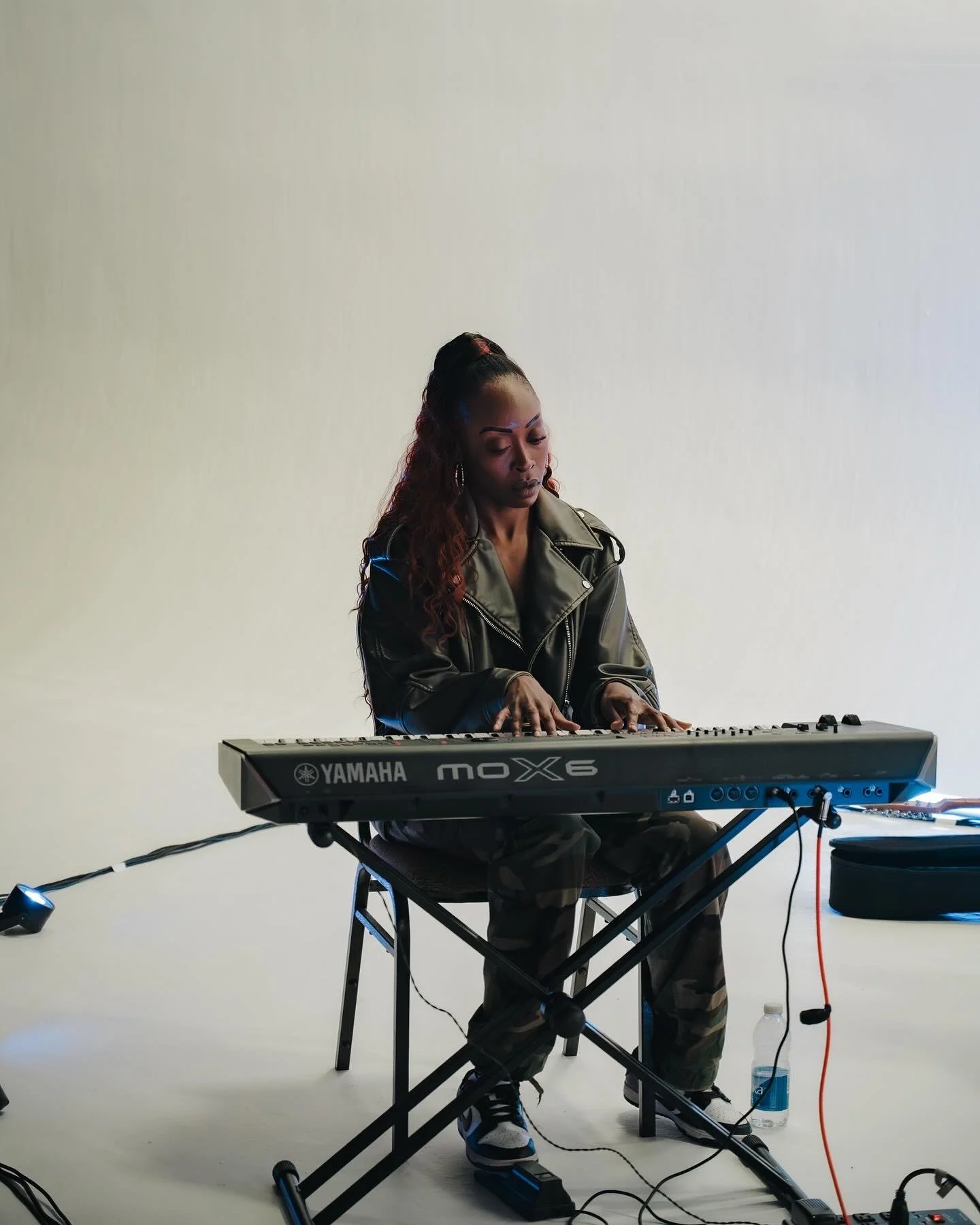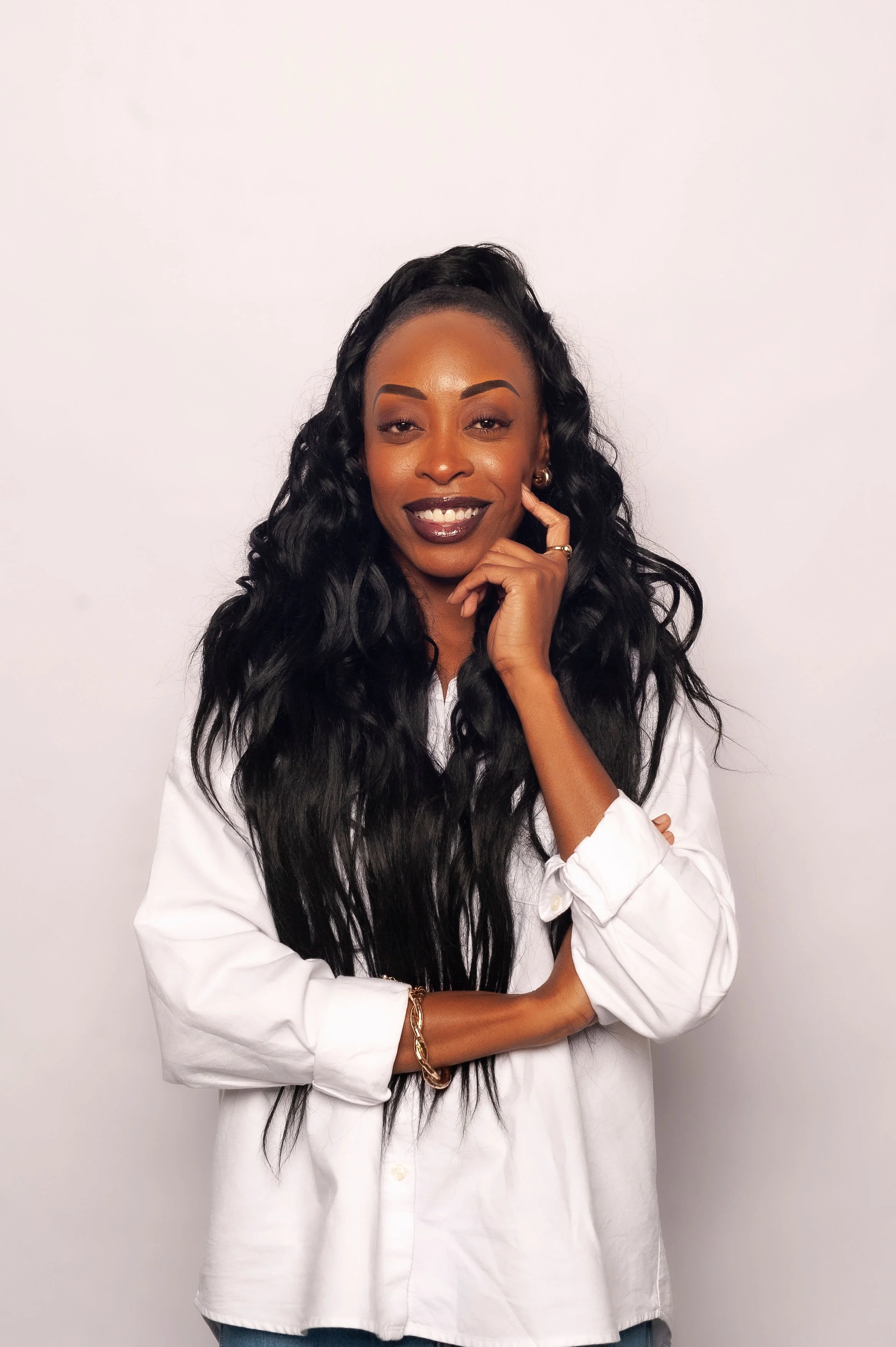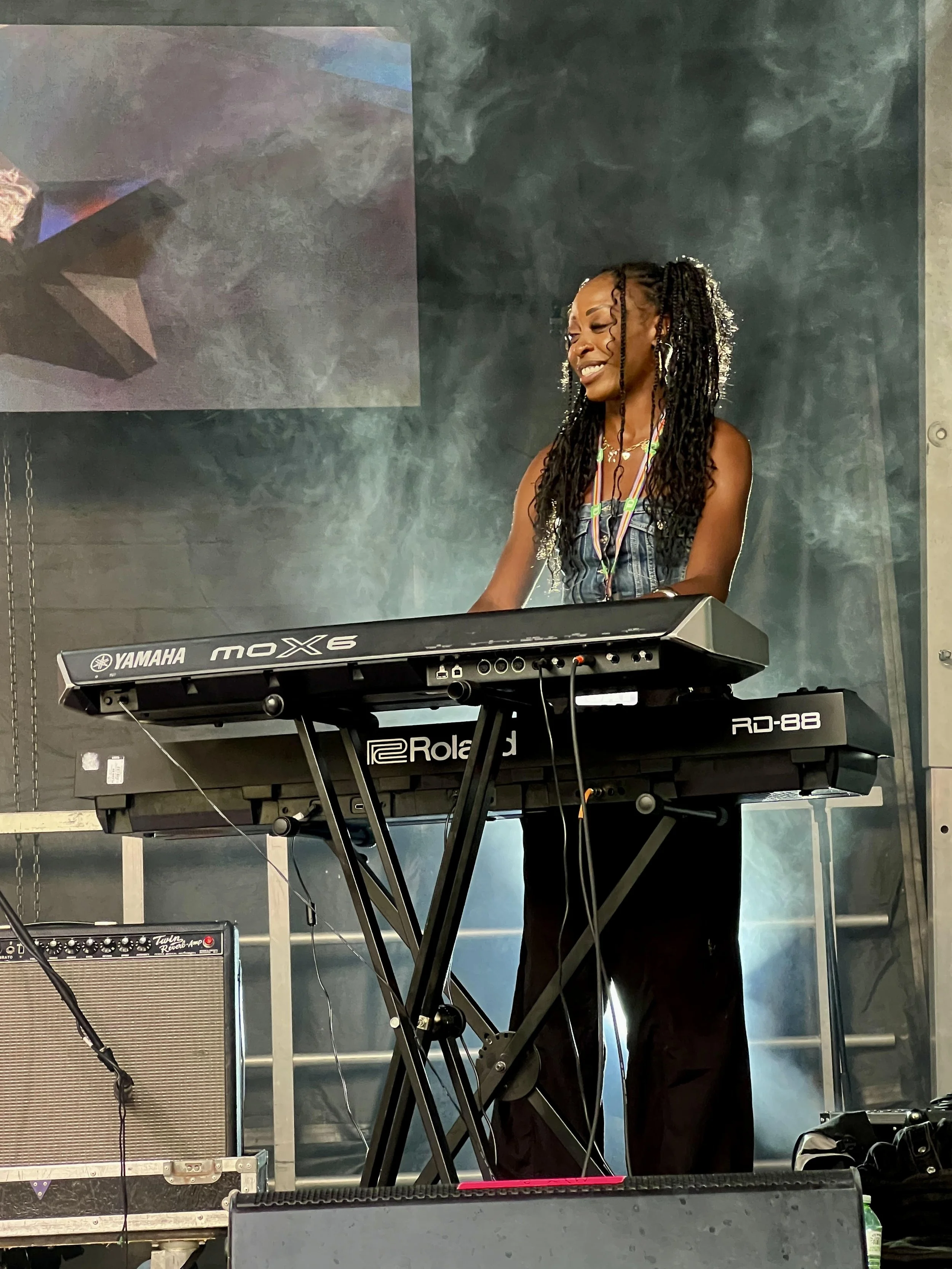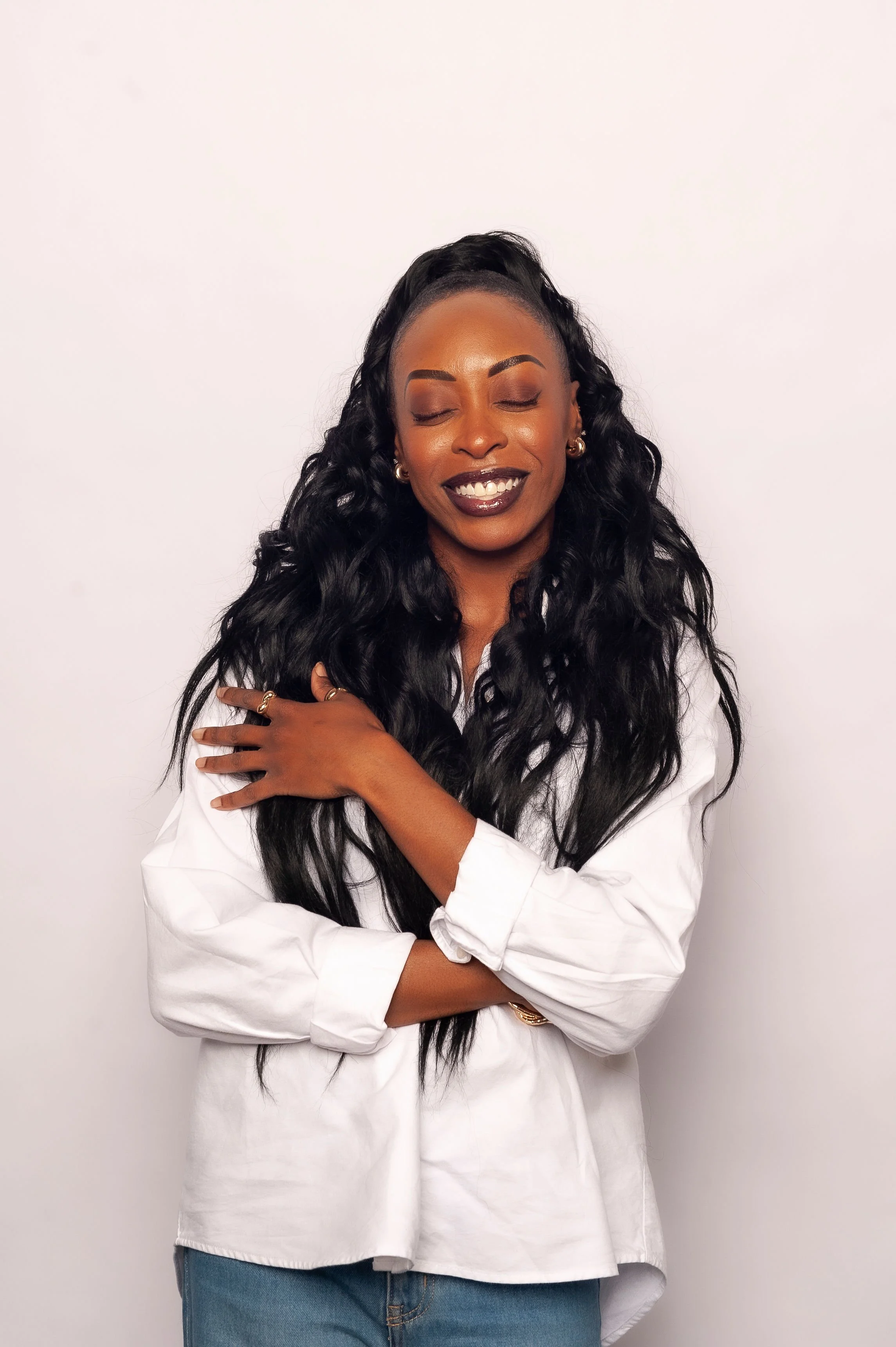RAE who played the keys.
My name is Rachel Smith but you can call me RAE.
What do you do?
I’m a composer, pianist, musical director, educator, and producer with over 25 years of experience. Though classically trained, I’m drawn more to the feel of music than just theory. I love how different artists transform the same chords into unique emotional stories—that curiosity keeps me inspired.
Since moving back to Toronto, my goal has been simple: get in the room and stay there. I used to struggle with doubt, but learning to give myself grace opened doors—leading to over 30 shows last year, including Candlelight Concerts and touring gigs.
Alongside performing, I run an afterschool music program and teach in public schools. I was once the kid who needed someone to believe in me, so I try to be that support for others. Watching kids grow musically reminds me why I do this.
At my core, I want to create space for anyone who wants to be in the room—and help us all keep growing, creating from passion, not pressure or competition.
Having played piano for 25 years, how has your relationship with music evolved and what keeps you inspired to continue creating?
My musical journey has always been about finding where I fit. I was classically trained with perfect pitch, so I played by ear and didn’t feel like I fully belonged to any one genre. Growing up in a strict Jamaican-British Christian home, I was surrounded by gospel, UK rock, old-school soul, and drawn to neo-soul and R&B. It was a mix—and I didn’t always know to mold what I was hearing into the pieces I would work on.
That “in-between” space used to feel confusing, but now I see it as a strength. It’s what allows me to move between genres and connect with different people.
When I moved to Ottawa, I met musicians who didn’t study theory but had a deep, intuitive feel for sound. That changed everything for me. It reminded me of my childhood—rearranging songs just to see what I could create. That curiosity still fuels me.
What keeps me inspired is meeting people who challenge how I hear music. I love how sound can be reimagined over and over—and still connect us at the core.
What’s the most profound lesson playing the piano has taught you about life and discipline?
Honestly, the biggest lesson has been that it’s okay to make mistakes. I used to get frustrated when things didn’t click right away—but over time, I’ve learned to embrace the messy parts of the process.
Now, as a teacher and mentor, I remind my students (and myself) that perfection isn’t the goal—love and curiosity are. Some of my best ideas have come from mistakes that took me somewhere unexpected.
I used to sit at the piano for hours, not just to get things right, but to feel the depth of a chord or scale. That mindset stuck with me. I try to leave space for grace—because sometimes, the most beautiful things come from what didn’t go as planned.
As someone who loves seeing others make music, how do you think the act of creating music connects people on a deeper level?
It humanizes us. That’s really the best way I can put it.
One of my favorite things about being in creative spaces—especially sessions—is witnessing how people work. Sometimes you’re with seasoned, top-tier artists, and even then, you realize: they’re still figuring it out too. They have doubts. They make mistakes. And sometimes, you even share the same instincts or approaches. That kind of connection reminds you you’re not alone in this, even if music-making can often feel isolating.
Creating together strips away ego. It builds trust. Whether someone walks into the room super confident or still unsure of their voice, there’s space for both. And there’s something sacred about what comes out of that kind of room—especially when we let go of plans and just follow the energy.
Personally, I’m not the producer who expects you to just write to my loops or ideas. I’m the one who’ll come to your house, sit with you on the floor, bring my keyboard, and just talk. See where the vibe leads us. Because for me, it’s not about chasing perfection—it’s about being in the room, being present, and letting the music unfold.
At its best, creating music gives us a window into each other’s souls. It forces us to pause, be intentional, and say something real. And that’s where the deepest connections live.
Do you have specific piece or performance that holds significant emotional value for you? Why does it resonate so deeply?
Honestly, every performance means something to me—because I wasn’t supposed to be here. I spent years away from music, working in sales and marketing, far from the path I’m on now. So every time I’m on stage, it’s a reminder of how far I’ve come.
One of the first shows that really shifted things was with City Fidelia—it opened the door to more opportunities and community. Spaces like Listening Room, and people like Shadia Ahmed, have made it possible for me to feel seen and supported. So no, there isn’t one defining performance. Every single one feels like a gift.
How has your musical journey influenced your personal identity and the way you see the world?
Music used to be my whole identity. I was the girl who played keys—shy, introverted, yet unsure of my ideas. I was confident in my playing, but not in my voice as a creator and I think while it’s important to know how to do all of the things and be the things as an artist, creative etc., it’s also important to know your identity off your instrument.
In 2014, I stepped away from music to figure out who I was outside the sphere and that was a whirlwind. During my time in Ottawa, I worked in sales and leadership, developing skills that helped me grow in ways music hadn’t yet allowed. When I came back to Toronto and to music, I returned with a new mindset, understanding and a continuously evolving confidence/determination to not just try, but do, and enjoy the process!
I realized knowing theory, or playing the music isn't enough—it’s about stepping outside, connecting, creating, networking, laughing, bonding, and being transparent with others. That shift taught me the power of collaboration. It’s not just about holding knowledge, but sharing it and letting it evolve through community.
How do you take the richness of jazz and classical and bring it into pop without losing its essence? And how is that approach even seen within those different spaces?
So I had all this knowledge, but I didn’t know how to join the others outside. I felt like I was watching the game, not playing in it. Moving to Ottawa, stepping back from music, and then returning with new tools and a renewed mindset allowed me to finally step outside—to be in the street, making music with others, on my own terms.
That shift taught me that having knowledge isn't enough. That’s the biggest lesson from my journey. It’s not just about what you know. It’s about going outside. It’s about networking. It’s about creating in new spaces and allowing people to challenge your ideas and offer new perspectives.
That’s why collaboration is such a huge part of my practice now. It’s not enough to hold information or ideas for yourself. It’s about sharing them, growing through them, and building something greater—together.
If you could collaborate with any artist, past or present, who would it be and what kind of would you want to create?
That is a really big question. I'm going to come back to that one.
What 5 songs are you listening to right now?






